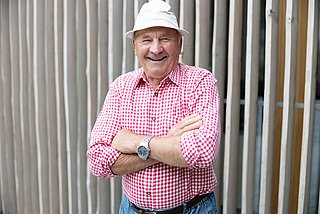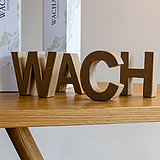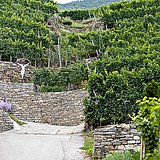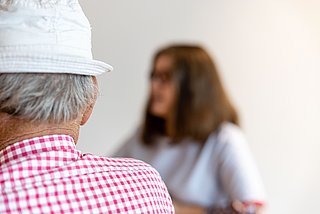At 9 AM on a summer morning, the ravine called Spitzer Graben is the coolest spot in all of the Wachau. For Maximilian Högl, the day has long since begun. Already at 5 AM he had driven his tractor up the steep slopes. This is vineyard work. He brandishes a broad smile as he meets Margarete Jäger, currently a student at the Klosterneuburg college of viticulture. The perspective of one day taking over her family’s winery at Weißenkirchen appeals to Margarete. We talk with the two of them about the Wachau, the region’s future and how important an emphasis on quality is.
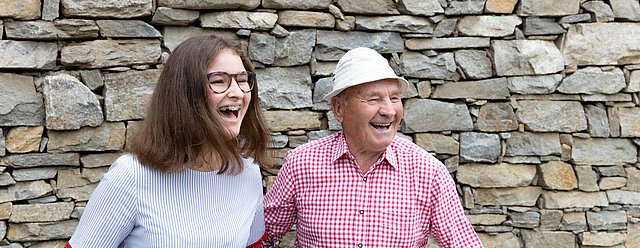
Perspective on generations
Almost 70 years separate Margarete Jäger and Maximilian Högl. Still, the two Wachau residents have a lot in common. A conversation about the Wachau, about the region’s unique character and its future.
I’m a Wachauer: what is typical for this region?
Margarete Jäger: I see it as unique here how different generations get along. We live and work together. Learn from each other. Here everything is just a little more personal, like in a family. I think our guests sense that as well.
Maximilian Högl: In our family, three generations also work side-by-side. Our son and grandson have already taken over the business. I tend the vineyards. Every day. You need to get out and take care of the vineyards all the time to keep them in such good shape. With our steep slopes, that means doing a lot by hand. Did you know that 20% of our vineyards can’t even be reached with machinery? Those areas we only work by hand.
Margarete Jäger: The vineyard area in the Wachau is limited. That’s why everything is on such a small scale. Most of the businesses are run by families. The result is highly unique and very personal wines. I honestly believe you can taste that. Each family’s personal signature. I see that also as something typical for the Wachau.
Let’s take a look ahead. What will the Wachau be like in 2030?
Margarete Jäger: I see the Codex Wachau as still influencing our work for a long time to come. It is the basis enabling us to produce such high quality. Wine quality is everything.
Maximilian Högl: That’s already true today: without quality you’re doomed. And you have to keep moving. At 85 I go to the vineyards every day. In the winter I go skiing ...
Margarete Jäger: That’s it! In the same way, we in the Wachau also have to keep moving, keep adapting to the changes. I think a lot about climate change. Once I finish school I want to gather impressions in the southern hemisphere, South Africa, Australia. I’m interested in how vintners in hot countries work. After all, the Wachau’s climate is also changing.
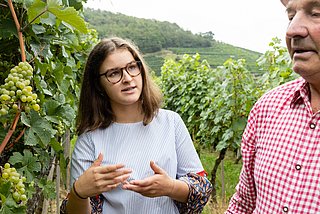
Maximilian Högl: I notice that in the vineyard. Some of the vines don’t do well in the heat. See that Riesling there? It has a sunburn. Even though we cut back the foliage early on to get it used to the sun. There you go, you never finish learning. Drought will be a main concern in coming years – which leads us to the subject of irrigation. In the Wachau there will be no way around that in future.
Margarete Jäger: I see it that way too. And we need to consider how to make the best use of our resources. To me this is about sustainability. For instance, it’s about avoiding using the tractor in the vineyard more than absolutely necessary. What’s good for the soil also improves grape quality ...
... Sustainability and quality go hand-in-hand in the Wachau. Quite naturally. Maybe because here we naturally think in terms of generations. Thanks for your comments.
